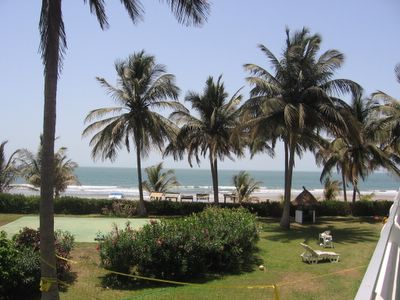
Er, the view out of our hotel window in The Gambia. No cracks about "suffering for the Lord," please! Remember, I'm a sick man!
The continuing saga of Bob, Renita, Hannah, and Noah-- four ordinary Americans trying to figure out what Dancin' with the One Whut Brung 'Em means. Currently, it means being servants to the people of Liberia, and being served in return. What does that look like? Pay attention and find out with them!